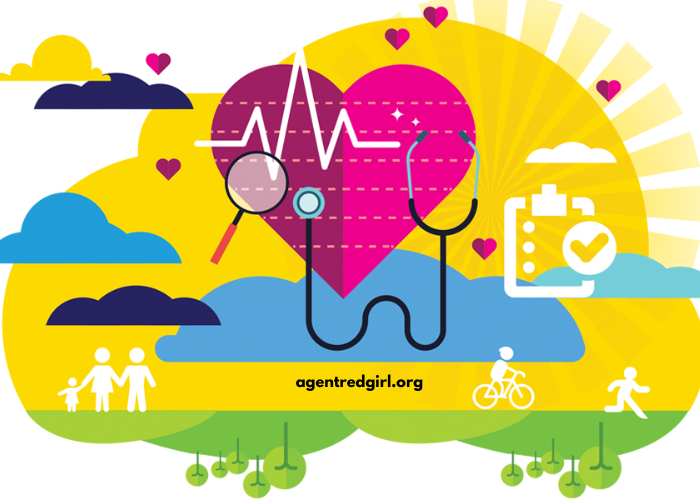Emotional well-being is an essential aspect of overall health. It is the state in which individuals feel balanced, content, and able to manage the challenges of daily life effectively. In today’s fast-paced world, where stress and anxiety levels are at an all-time high, maintaining emotional health is more important than ever. This article will explore various health strategies to improve emotional well-being, offering practical tips and evidence-based solutions to help individuals lead a healthier, happier life.
Understanding Emotional Well-Being
Before delving into strategies to improve emotional well-being, it is important to define what emotional well-being entails. Emotional well-being refers to a person’s ability to recognize, understand, and manage their emotions in a healthy way. It includes:
- Self-awareness: Understanding one’s emotions, strengths, and weaknesses.
- Resilience: The ability to bounce back from setbacks and maintain a positive outlook.
- Self-esteem: Feeling confident in one’s worth and abilities.
- Healthy relationships: Maintaining positive, supportive connections with others.
- Emotional regulation: Managing stress and emotions without being overwhelmed by them.
Emotional well-being is crucial not only for mental health but also for physical health. Research has shown that emotional stress can lead to various health problems, such as heart disease, high blood pressure, and digestive issues. Therefore, adopting health strategies for better emotional well-being can be a powerful tool in preventing these issues.
The Importance of Emotional Health
Good emotional health is integral to overall well-being. When individuals experience positive emotions, they are more likely to have a stronger immune system, lower levels of stress, and better relationships with others. Conversely, poor emotional health can lead to mental health conditions such as depression and anxiety, which can have a lasting negative impact on one’s life.
By adopting strategies to improve emotional health, individuals can better manage their feelings, cope with stress, and build resilience in the face of challenges. These strategies are not only beneficial for personal growth but also for fostering stronger relationships, improving workplace performance, and enhancing physical health.
Health Strategies for Emotional Well-Being
There are numerous health strategies that can be implemented to foster better emotional well-being. Here are some of the most effective ones:
1. Practicing Mindfulness
Mindfulness involves paying attention to the present moment without judgment. It can be achieved through meditation, deep breathing exercises, or simply focusing on one’s senses during everyday activities. Mindfulness practices help reduce stress, enhance self-awareness, and improve emotional regulation. Regular mindfulness practice has been shown to increase positive emotions and improve emotional well-being by helping individuals remain calm and centered in the face of stress.
Benefits of Mindfulness for Emotional Well-Being:
- Reduces stress and anxiety
- Increases emotional awareness
- Enhances concentration and focus
- Improves resilience to challenging emotions
- Promotes a sense of calm and relaxation
2. Regular Physical Activity
Physical exercise has been proven to have a positive effect on emotional health. When we exercise, our brains release endorphins, which are chemicals that promote happiness and reduce stress. Regular physical activity, such as walking, jogging, yoga, or strength training, can significantly improve mood, reduce anxiety, and increase feelings of well-being.
How Exercise Benefits Emotional Health:
- Boosts mood through the release of endorphins
- Reduces symptoms of depression and anxiety
- Increases self-esteem and body image
- Improves sleep quality, leading to better emotional regulation
- Enhances overall physical health, which positively impacts emotional health
3. Cultivating Healthy Relationships
Having strong, supportive relationships is one of the most important factors in emotional well-being. Social connections provide a sense of belonging, purpose, and security, which are essential for emotional health. Positive relationships with family, friends, or even co-workers can reduce feelings of loneliness and isolation, boost self-esteem, and provide emotional support during difficult times.
Tips for Cultivating Healthy Relationships:
- Communicate openly and honestly with others
- Practice empathy and active listening
- Spend quality time with loved ones
- Set healthy boundaries and respect others’ boundaries
- Seek professional support if relationship issues arise
4. Maintaining a Balanced Diet
Nutrition plays a crucial role in emotional health. The food we eat affects our brain chemistry, energy levels, and overall mood. Consuming a balanced diet with adequate nutrients helps support the body’s stress response and emotional regulation. Nutrient-dense foods like fruits, vegetables, whole grains, and lean proteins can improve brain function and reduce the risk of mood disorders.
Nutrients that Promote Emotional Well-Being:
- Omega-3 fatty acids: Found in fish, flaxseeds, and walnuts, these healthy fats are linked to improved mood and reduced symptoms of depression.
- Vitamin D: Low levels of vitamin D are associated with mood disorders, including depression. Sun exposure and vitamin D-rich foods like fatty fish can help.
- B vitamins: These vitamins, especially B6, B12, and folate, are essential for neurotransmitter function and emotional regulation.
- Magnesium: This mineral helps reduce stress and anxiety and supports overall brain health.
5. Getting Enough Sleep
Adequate sleep is critical for both mental and emotional health. Lack of sleep can lead to irritability, poor emotional regulation, and heightened stress levels. Chronic sleep deprivation is linked to an increased risk of developing anxiety and depression. Ensuring that you get enough restorative sleep every night can significantly enhance emotional resilience, improve mood, and increase energy levels.
Tips for Improving Sleep Quality:
- Establish a regular sleep routine by going to bed and waking up at the same time each day.
- Create a relaxing bedtime routine, such as reading or listening to calming music.
- Avoid caffeine and heavy meals before bedtime.
- Make sure your sleep environment is comfortable, cool, and free of distractions.
- Limit screen time before bed to improve sleep quality.
6. Stress Management Techniques
Stress is a natural part of life, but chronic stress can negatively impact emotional health. Learning how to manage stress effectively is a crucial health strategy for emotional well-being. Stress management techniques, such as deep breathing, progressive muscle relaxation, and guided imagery, can help reduce the physiological and psychological effects of stress.
Effective Stress Management Techniques:
- Deep breathing exercises: Slow, deep breaths activate the body’s relaxation response and can reduce feelings of anxiety.
- Progressive muscle relaxation: Tensing and then relaxing different muscle groups helps release physical tension and promotes relaxation.
- Mindfulness meditation: Taking time to focus on your breath and clear your mind can help reduce stress and anxiety.
- Visualization techniques: Imagining a peaceful place or a successful outcome to a stressful situation can reduce anxiety and promote calmness.
7. Seeking Professional Help When Needed
Sometimes, emotional challenges may be too overwhelming to handle alone. In such cases, seeking professional help from a therapist, counselor, or psychiatrist can be a crucial step toward better emotional health. Mental health professionals can provide guidance, coping strategies, and support for individuals dealing with depression, anxiety, or other emotional difficulties.
When to Seek Professional Help:
- Persistent feelings of sadness, hopelessness, or anxiety
- Difficulty managing stress or overwhelming emotions
- Struggling with personal relationships or workplace stress
- Having trouble finding motivation or enjoying life
- Experiencing changes in appetite, sleep patterns, or energy levels
8. Setting Realistic Goals
Setting and achieving realistic goals can significantly boost emotional well-being. Goals provide a sense of purpose and accomplishment, which can enhance self-esteem and motivation. It is important to set goals that are challenging yet attainable, and to celebrate progress along the way.
How Goal-Setting Supports Emotional Well-Being:
- Provides a sense of purpose and direction
- Increases self-confidence and motivation
- Reduces feelings of overwhelm by breaking tasks into manageable steps
- Enhances a sense of achievement and satisfaction
9. Engaging in Hobbies and Activities You Enjoy
Engaging in activities that bring joy and satisfaction can have a profound impact on emotional health. Whether it’s a creative hobby like painting, gardening, reading, or playing music, taking time to do what you love helps you unwind, boost your mood, and find personal fulfillment.
Benefits of Enjoying Hobbies:
- Increases feelings of happiness and satisfaction
- Reduces stress and promotes relaxation
- Encourages social interaction when done with others
- Provides a sense of accomplishment and purpose
10. Practicing Gratitude
Gratitude is a powerful tool for improving emotional well-being. Focusing on the positive aspects of life, rather than dwelling on negative emotions, can shift one’s mindset and improve overall happiness. Keeping a gratitude journal or simply taking time each day to reflect on things you’re thankful for can help foster a more positive outlook on life.
How Gratitude Enhances Emotional Health:
- Promotes positive thinking and emotional resilience
- Increases happiness and satisfaction
- Reduces stress and anxiety
- Strengthens relationships through appreciation
Conclusion
Incorporating health strategies to improve emotional well-being is essential for living a balanced, fulfilling life. By adopting practices such as mindfulness, regular exercise, maintaining healthy relationships, and focusing on self-care, individuals can enhance their emotional resilience and overall quality of life. It’s important to remember that emotional health is a journey, not a destination. Consistency in these practices, along with seeking professional help when needed, can lead to long-lasting improvements in emotional well-being, helping individuals navigate life’s challenges with greater ease and confidence.





